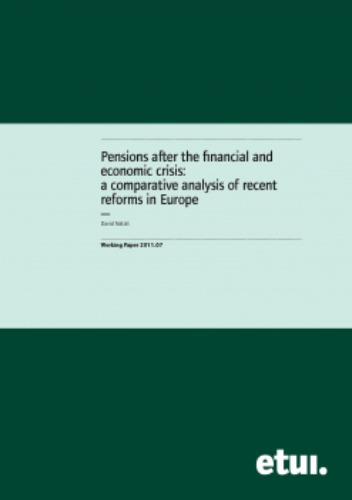Debate cycle by Observatory of European Systems of Complementary Social Pension Plans
The Observatory of European Systems of Complementary Social Pension Plans of the University of Barcelona, which was created a year ago, will launch its first dissemination activity for the audience on April 29. The activity is a debate cycle on complemenary social pension plans, that is, the set of actions to fulfil the public pensions from a private entrepreneurial and individual initiative. The first session of the cycle will talk about the latest recommendations on complementary social pension plans in...










